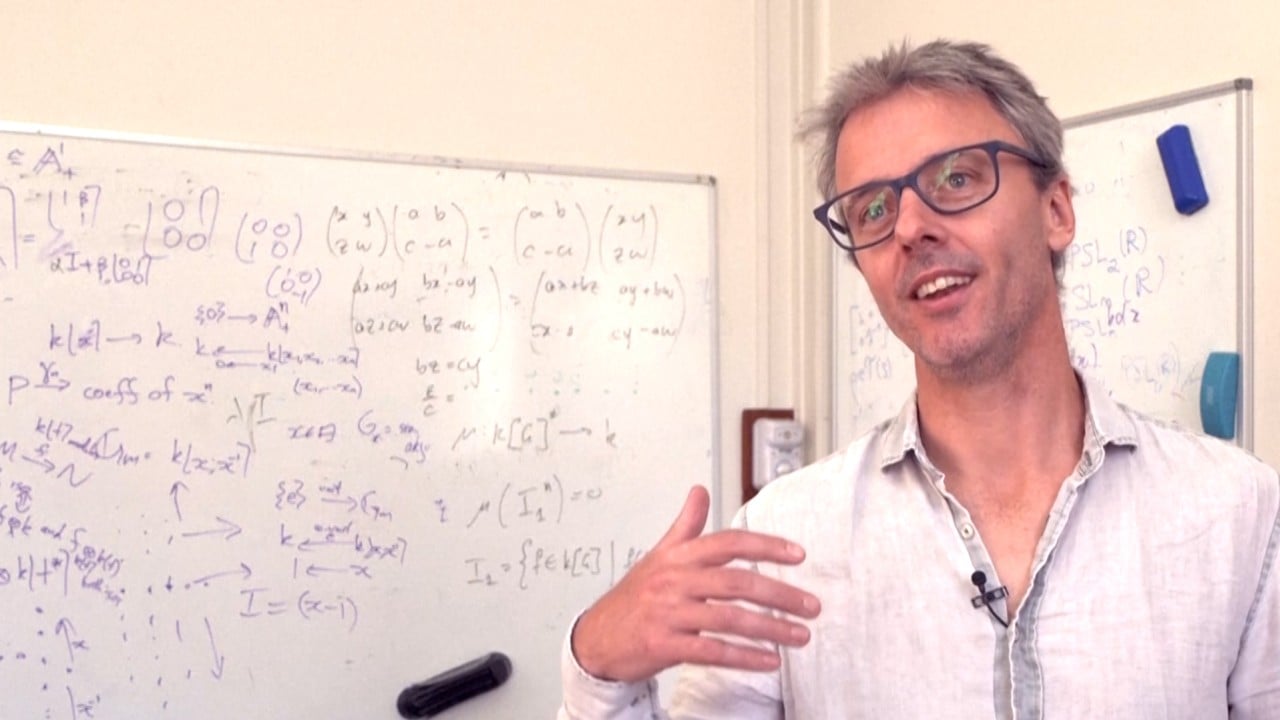“At a time when China’s overall research level was lagging behind, Yang and his collaborators did first-rate work, which won international recognition and greatly inspired the self-confidence of Chinese people,” academy director Xi Nanhua wrote on a dedicated memorial webpage.
“He quickly rose to [become] an academic leader and public figure after China’s reform and opening up. His widespread influence in academia and society greatly benefited the development of mathematics in China,” Xi said.
China must let scientists think big and long term, top mathematician says
China must let scientists think big and long term, top mathematician says
Former Harvard maths professor and Fields Medal Laureate Shing-Tung Yau, who knew Yang for more than 40 years, described him as a “talented researcher, a competent leader and a calm, thoughtful gentleman”.
“He never sought fame or fortune. The future of mathematics in China was more important to him than anything else. I admire and respect him very much,” said Yau, who now chairs Tsinghua University’s Yau Mathematical Sciences Centre.
In the official obituary of Yang on its website, the academy said the mathematician was a pioneer and role model who inspired generations of young people in China to go into scientific research.
Yang was born in 1939 in Nantong, a city in the eastern province of Jiangsu. He discovered his passion for maths early and was just 16 when he was admitted to Peking University’s department of mathematics and mechanics.
After earning his PhD from the Chinese Academy of Sciences’ Institute of Mathematics in 1966, Yang secured a position there, but his research was soon cut off by the decade-long Cultural Revolution.
Yang and his colleague Zhang did their best to collect and read the latest results on a topic that interested them both – value distribution theory, also known as the classical Nevanlinna theory – and proposed their own theorems to improve it.
Walter Feit, who was part of the 1976 delegation of mathematicians to China, said in an article published the following year that the pair had “found something both new and deep to say about Borel directions and the number of deficient values of meromorphic functions”.
“This area, which requires formidable analytic techniques, has been ploughed over carefully by many specialists all over the world for 50 years,” Feit wrote, in the February 1977 issue of the journal Notices of the American Mathematical Society.
Yang was elected in 1980, at the age of 41, as an academician of the Chinese Academy of Sciences. In the following years, he took on more leadership responsibilities, serving as director of his institute and chairman of the Chinese Mathematical Society.
Award-winning Chinese mathematician returns to Peking University from US
Award-winning Chinese mathematician returns to Peking University from US
In 1998, Yang became the founding director of the Academy of Mathematics and Systems Science, when the Institute of Mathematics was amalgamated with institutes for applied mathematics, systems science, and computing disciplines.
Yau, the former Harvard professor, said Yang had also played a major role in establishing the Morningside Centre of Mathematics under the Chinese Academy of Sciences.
“We started [the Morningside Centre] in the 1990s, and Yang did a large part of it as I was not living in China back then,” Yau said, in a China Science Daily article published on Thursday.
“We wanted to make the Morningside Centre something like the Institute for Advanced Study at Princeton University, but China was still relatively closed off then and Yang had to make a lot of effort convincing foreign mathematicians to come to Beijing.”
Maths genius leaves Harvard to help make China a powerhouse on subject
Maths genius leaves Harvard to help make China a powerhouse on subject
Yang received numerous awards for his research during his illustrious career, including the National Natural Science Prize, Hua Luogeng Mathematics Award, Tan Kah Kee Mathematical Sciences Award, and Ho Leung Ho Lee Award.
In 2022, the International Congress of Chinese Mathematicians conferred its first Mathematics Contribution Award to Yang, in recognition of his lifelong contribution to the discipline’s development in China.
“I never thought Professor Yang would leave us so soon, but I’m glad he had the award last year. I think he knew how much we admired him, which makes me a little relieved,” said Yau, a sponsor of the congress.



